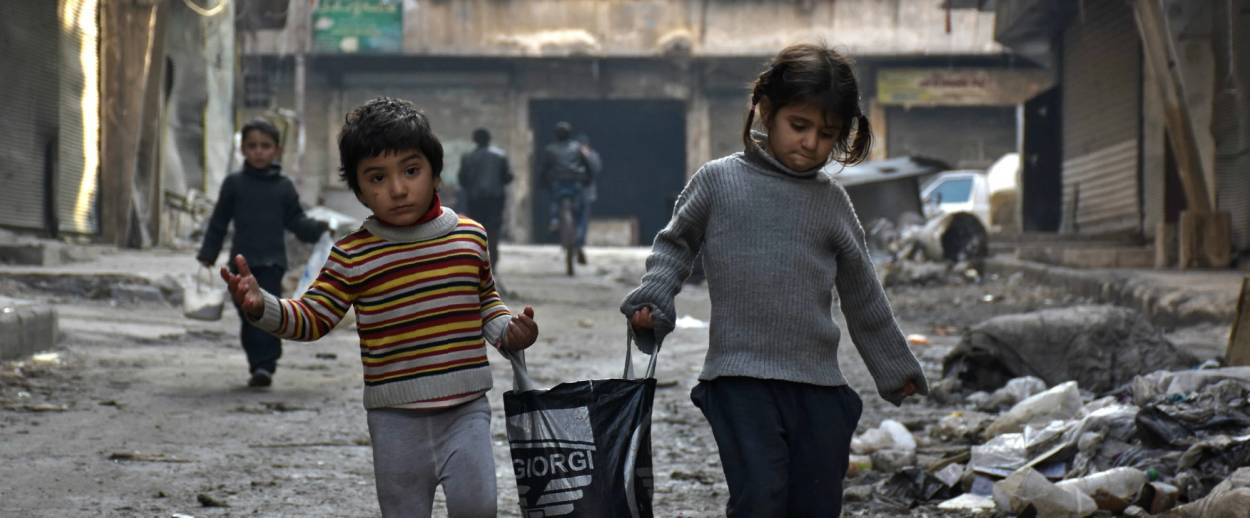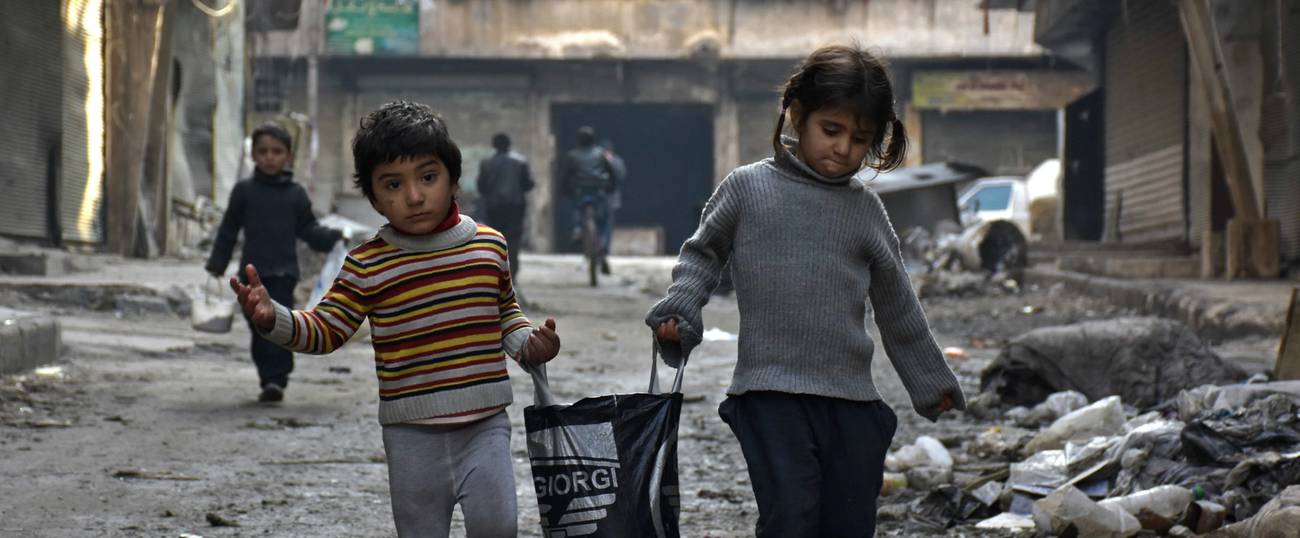Israel Approves Plan to Take in 100 Syrian Orphans
A first for Israel during the Syrian civil war, which rages on




Israel is taking in its first refugees from Syria’s six-year-long civil war.
On Wednesday, local media reported that Israeli Minister of Interior Aryeh Deri had approved an “outline” for a plan by which 100 Syrian children orphaned during the country’s ongoing civil war would receive temporary residency status in Israel. After four years, they could get permanent residency and bring family members from Syria to live with them.
Israel has resettled refugees from neighboring Arab states before, although under much different circumstances. After Israel pulled its remaining troops from southern Lebanon in 2000, it resettled 6,500 Lebanese from the former occupied areas who feared reprisals from Hezbollah. This mostly included fighters from the South Lebanon Army, a militia that supported Israel’s military occupation. The lives of the militants and their families would have been in danger in a post-occupation Lebanon, and Israel felt an obligation to protect their former partners.
Now, Israel has provided medical care to around 2,600 Syrians injured during the country’s conflict—which has killed around a half-million people and displaced 11 million more. The Israeli public is also aware of the horrors unfolding just a few hours to the north: Prime Minister Benjamin Netanyahu has discussed increasing humanitarian aid related to the conflict, and back in December, an Israeli crowdfunding campaign raised over a million shekels ($250,000) for displaced Syrian children in less than a week.
That Israel has not accepted any refugees from Syria—while Lebanon and Turkey, two countries that are comparatively poorer and less stable, now host a combined 3.7 million Syrians—is partially a result of the country’s fraught position within the Middle East. Israel has been in a state of cease-fire with the Syrian government since the 1973 Yom Kippur War, and Syria is rife with terrorist groups violently opposed to the Jewish state’s existence, including Hezbollah, ISIS, and al-Qaida. It’s hard to imagine any Israeli government accepting hundreds of thousands of refugees from an enemy country overrun with militarism.
But this week’s news shows that over a half-decade into the civil war, Israel is at least willing to accept some number of refugees under specialized circumstances. If the children end up settling in Israel, they’re also likely to be there for awhile: Although the regime of Bashar al-Assad brutally expunged the last pockets of non-Islamist resistance in the key city of Aleppo in December, the regime isn’t anywhere to close to controlling the entirety of the country. Over the past week, peace talks held in the Kazakh capital of Astana stalled, ISIS launched a renewed attack on the major city of Dier Zour, and jihadist factions clashed in Idlib, in Syria’s northwest.
Many Syrian refugees also say they won’t return to the country until Assad is out of power, something that probably isn’t going to happen for awhile.
Previous: Israelis Have Crowdfunded a Million Shekels for Syrian Children in Less Than a Week
Related: The Middle East Has Fractured. Is Europe Next? A Tablet Roundtable Discussion.
Armin Rosen is a staff writer for Tablet Magazine.